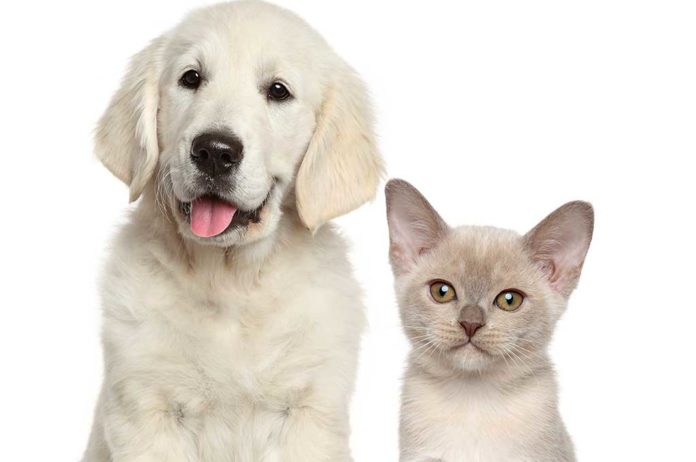- Advertisement -
Summer is the time when a lot of us think about getting a new puppy or kitten. What are some important things to consider?
- Do you have the time and financial resources necessary to devote to a new puppy or kitten? Depending on their age, puppies need to have someone around every 2-4 hours to let them go to the bathroom up until they are 3-4 months of age and every 6-8 hours after that while they are still house-training. Kittens are a bit easier in that department as most kittens are litter trained by 8 weeks of age, but they still require more attention than older cats, in general. Puppies and kittens require proper housing, collars, vaccinations, deworming, spaying, neutering, flea and heartworm medication, food, bedding, toys, and more! This can add up quickly – so be aware that there really is no such thing as a “free puppy” or “free kitten.” In the end, they all have a certain amount of cost attributed to them beyond providing healthy food and shelter. (Now is a great time to look into pet insurance or wellness plans as there are a lot of options out there that help make the financial considerations less.)
- What sort of puppy/kitten is best suited to your household? Do you have other pets? What are the ages of the people in your household? Do you want something big, small, active, sedate, smart, playful, long-haired, short-haired… etcetera. It’s best to do your research before falling in love with the first cutie you meet. Look up breeds on the internet (www.akc.org/dog-breeds) or (www.petfinder.com/cat-breeds) or in the library and see what characteristics match your household first. It’s wise to investigate what regulations exist in your apartment, house or neighborhood regarding pets. Do you have a fenced yard? Not all dogs are active but most have exercise requirements and you should know what fits your situation best. Not all pets like other pets or kids, so understanding what you already have might help you choose your next pet better.
- Is a young pet the best or would an older pet fit better? For people who are not home for most of the day, a young pet might be difficult. Young puppies require frequent bathroom breaks and training to help keep them from trouble for several months. Kittens are easier but still require attention and time when they’re young that an older cat might not require. Sometimes young adults are just as full of youth and vitality but don’t need quite as much time for training. Sometimes older pets are already trained and more sedate and might be a better fit for someone with different energy levels or time constraints.
Welcoming a new pet should be something you research carefully and plan for to make the best possible future for years to come. Your veterinarian is a good resource for questions, as are shelters or rescue groups.
- Advertisement -






















